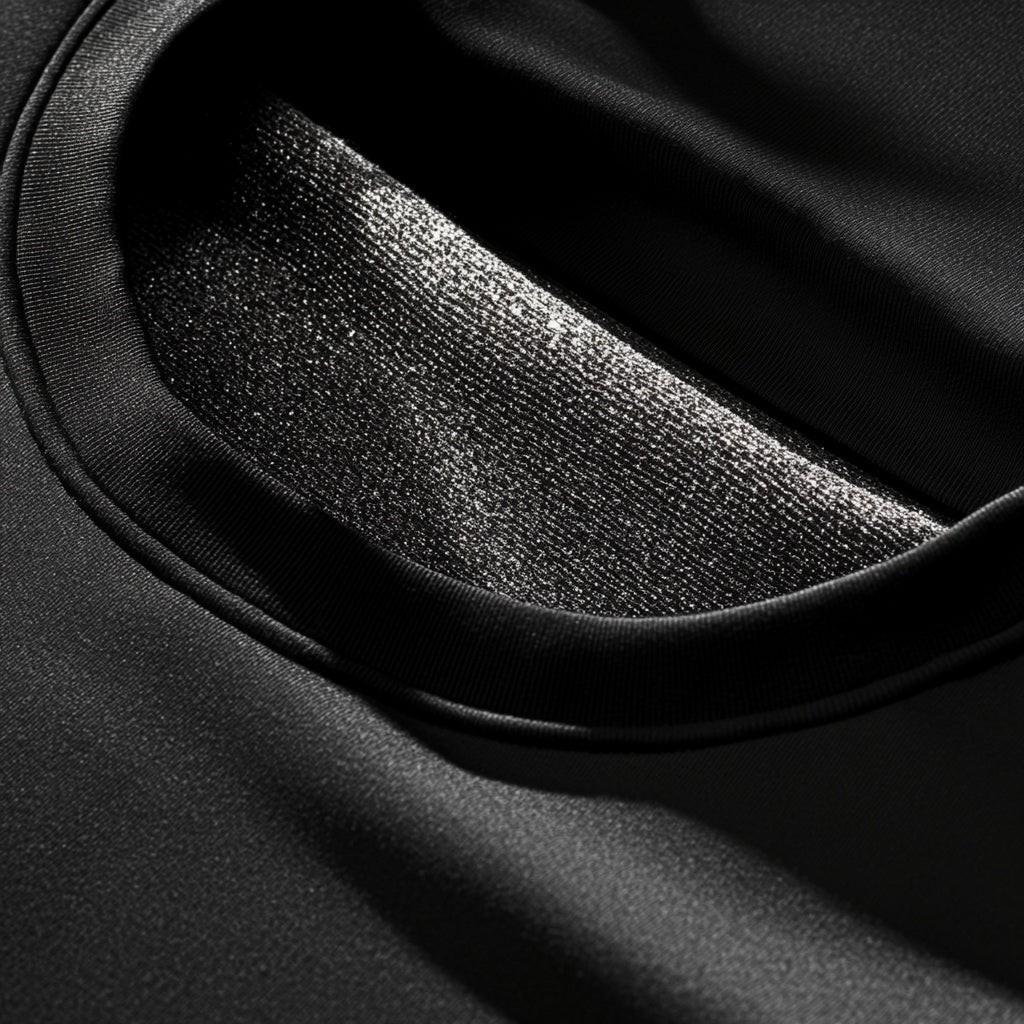What Benefits Does the Use of Retinol Bring to Your Skin?
Retinol is an important component of skincare regimens for a variety of reasons, including the treatment of acne and the promotion of healthy aging. But how does it work?
The use of retinol, which is a type of vitamin A, has been shown to improve the look of skin conditions such as fine lines and wrinkles, as well as dark spots and laxity. Additionally, it assists in the unclogging of pores and protects against outbreaks.
Advantages of applying retinol to your skin:
- Reduces the appearance of fine lines and wrinkles: Encourages the turnover of skin cells and the production of collagen Retinol is a type of vitamin A that has been shown to promote the turnover of skin cells and the production of collagen, both of which can help to lessen the look of fine lines and creases.
- Improves skin texture and tone: Retinol can also help improve skin structure and tone by reducing hyperpigmentation, softening uneven areas, and improving general shine. These benefits can be achieved by decreasing the amount of discoloration on the face.
- Minimizes acne and unclogs pores: It has been shown that retinol can help control sebum production, clear pores, and reduce irritation, which makes it an effective therapy for acne and other facial problems. Retinol also reduces the appearance of acne on the face.
- Boosts skin hydration: Retinol can help improve the skin's ability to hold moisture, which can lead to skin that is gentler, smoother, and more flexible. It does this by increasing the skin's humidity level.
- Enhances overall skin health: Improves the skin's resilience and works to improve overall skin health Retinol is a powerful vitamin that can help shield the skin from the damaging effects of the environment, as well as work to improve overall skin health.
Acne
Retinol is an excellent choice for anyone searching for an acne treatment that is both efficient and effective. This substance, which is derived from vitamin A, has been shown to enhance the look of skin by accelerating the turnover of skin cells, lowering inflammation, and lightening dark spots. Additionally, it has the ability to diminish oil production and decongest pores.
Acne may be treated with retinol in two different ways: topically, as a topical therapy, or internally, as recommended by your doctor. You may find retinol creams, gels, and serums sold over-the-counter (OTC) that have concentrations of retinol ranging from 0.25 percent to 1.5 percent. These medications may be beneficial if you do not want to spend the money for prescription-strength retinoids, which are only accessible via a doctor's order and can only be purchased with a prescription.
Even while over-the-counter retinol creams may cause fewer irritation and adverse effects than prescription-strength retinoids, it is still in your best interest to speak with a dermatologist before taking a retinoid. She is able to advise you on the most appropriate product and concentration for your skin, as well as the frequency with which you should use it.
In most cases, dermatologists would advise their patients to apply a very thin layer of retinol to the afflicted region each night before bed. It is essential to take things slowly at first, however: "For many people, this can lead to a lot of irritation, so starting with a small amount and gradually building up the frequency as tolerated is the best approach," says Dr. Mitchell. "Starting with a small amount and gradually building up the frequency as tolerated is the best approach."

There is also the option of combining retinol solutions with other components that are beneficial to the skin, such as ceramides or hyaluronic acid. This is a recommendation made by certain physicians. For instance, the Skin Renewing Retinol Serum that is offered by Cerave combines both retinol and hyaluronic acid in its formulation. Because of its ability to help maintain moisture, hyaluronic acid is an ideal choice for persons who live in areas that are typically cooler.
Salicylic acid is another another essential component that should be looked for. Both the germs that might cause pores to get blocked as well as the dead skin cells can be broken down by this. In addition to this, it is recommended that you use an antibacterial cleanser to wash your face twice daily.
In addition to its widespread use as an acne treatment, retinol's anti-aging properties include a decreased appearance of wrinkles and fine lines. It does this by encouraging the creation of collagen, which in turn helps to tighten the skin and reduce the visibility of wrinkles and fine lines. In addition to that, according to Harvard Health, it helps to diminish UV damage as well as discoloration brought on by acne.
Fine lines and wrinkles
In both over-the-counter and prescription anti-aging products, retinol is widely considered to be among the most effective anti-aging components. It may cure moderate types of acne, hyperpigmentation, and redness, in addition to helping minimize the appearance of fine lines and wrinkles. It can also help reduce the look of hyperpigmentation.
Because they encourage the creation of collagen and the turnover of skin cells, retinoids are a family of vitamin A compounds that contribute to an improvement in the appearance of the skin. The appearance of fine lines and wrinkles, dark spots, and other symptoms of aging may be reduced as a result of their ability to target particular parts of the face.
How rapidly your fine lines and wrinkles disappear is directly proportional to the quantity of retinol that you apply to your skin. It may take more than a year for the full effects of utilizing retinol to become apparent, but after using it for a few months, you should see a change that is obvious to the naked eye.
It is essential to see a dermatologist on your objectives for skin care before beginning treatment with any retinol product. They are able to recommend the appropriate medication for you to take in order to attain the results you want without experiencing any adverse effects.
It is essential to begin treatment with a retinoid of a low potency and gradually increase the dose until you discover a retinoid that your skin can take without causing itching, redness, or any other adverse effects. It is also feasible to mix retinol with another anti-aging component in order to hasten the effects and get the most beneficial outcomes possible.
Because of the potential for certain retinols to cause dryness in the skin, it is essential to apply the product on freshly cleansed skin and then use a moisturizer thereafter. When using any form of retinol-based product, it is imperative that you protect your skin from the sun by using a broad-spectrum sunscreen.
Retinol may cause skin to become sensitive and inflamed, thus those who already have sensitive skin should avoid using it. Those who suffer from rosacea, eczema, or psoriasis may attest to the accuracy of this statement.
Retinol is a topical antiaging therapy that is available in a wide variety of medications that are sold without a prescription as well as by prescription from a dermatologist. It is a good method for reducing the visibility of other indications of aging such as sagging skin, dark spots, and fine lines and wrinkles. It is also an efficient method for minimizing the appearance of fine lines and wrinkles.
A topical retinoid is the most effective treatment option available to you if your goal is to lessen the visibility of wrinkles and fine lines on your skin. There are several distinct types of retinoids, such as tretinoin and azelaic acid, however the retinoid that is administered the most often is tretinoin. Other types of retinoids include.
Scars and other marks of darkness
The anti-aging properties of retinol are particularly well-known in relation to the treatment of the skin. However, it also has the potential to be an effective method for evening out the skin tone, minimizing the visibility of acne scars, and lightening dark spots.
Retinol, according to the findings of physicians, may reduce the visibility of age spots and freckles while simultaneously promoting the formation of collagen in the cells of your skin. Melasma is a skin condition that develops thin, flat, brown spots on sun-exposed portions of your face and body. This may help reduce the look of melasma, which is a skin ailment that generates these patches.
Vitamin A in the form of retinol, which acts by speeding up the turnover of skin cells, is known as retinol. This causes the top layer of skin to be organically exfoliated, which clears the way for younger, healthier skin cells to rise to the surface of the skin.
According to Dr. Chimento, a board-certified dermatologist who practices in Miami, Florida, this results in a complexion that is more luminous and clean.
Retinol may help reduce dark spots produced by hyperpigmentation, a condition in which your skin generates too much melanin. In addition to reducing the appearance of age spots and freckles, retinol can help fade dark spots caused by hyperpigmentation (the pigment that determines your skin color). This may be brought on by a variety of reasons, such as previous exposure to the sun and the formation of acne scars, in addition to other inflammatory disorders, such as rosacea or eczema.
A multi-pronged strategy, which involves regular use of sunscreen as well as topical application of medicines containing antioxidants, is what doctors suggest patients follow in order to forestall the formation of spots and other forms of pigmentation. You should look for products that include licorice root extract, alpha arbutin, hexyl resorcinol, green tea, and any other components that will help minimize the appearance of spots and brighten your overall complexion.
Dermatologists agree that taking retinol is completely risk-free for everyone, provided that the medication is administered in the correct manner and at the prescribed dosage. They recommend doing a patch test on a small portion of your skin before incorporating it into your skincare regimen and limiting its use to the areas of your body that are impacted by the condition.
What is retinol's most appealing quality? It won't be difficult to work into your existing skincare regimen!
If you've never used retinol before, it's best to begin with a formulation that has less of the active ingredient. It is possible that you may need to use it many times each week until your skin responds to the product. After that point, you will be able to progressively increase its frequency and intensity as required in order to achieve the desired level of effectiveness.
Oily skin
There are a range of skin issues that may be helped by using retinol, a substance that is widely used and supported by scientific research. It is especially useful for those with oily skin since it may help prevent breakouts by lowering the amount of sebum your pores generate. Additionally, it can help accelerate cell turnover, which will show a fresher complexion.
As an added benefit, it may also assist in reducing the visibility of dark spots and hyperpigmentation brought on by acne scars that have been present for a long time. Its antioxidant capabilities help minimize the effects of aging by neutralizing free radicals, which also contributes to its anti-aging benefits.
It is excellent news that retinol may be used safely on most skin types, including those with oily or combination skin, which might make it even more tempting to individuals who have oily or mixed skin. However, it is essential to choose a formulation that is suited to your particular skin type and to apply the product in the correct manner.
Before moving on to more powerful options, it is recommended by some physicians to begin treatment with a milder, less concentrated substance. Because it has the potential to produce irritation and redness, this is particularly important to keep in mind if it is your first time using it.
It is also important to keep in mind that it is ideal to avoid wiping your face too vigorously since doing so might actually remove the skin's natural oils. This is something else that should be kept in mind. As a result, your skin may start producing an excessive amount of oil in an effort to make up for the moisture it has lost.
Last but not least, make it a point to steer clear of skincare products that are too abrasive for your complexion. There are a variety of products available on the market that include mild exfoliating agents that are ideal for oily skin. Some examples of these ingredients are lactic acid, glycolic acid, and salicylic acid.
These four substances, in addition to retinol, may assist in keeping your pores clean and giving the appearance of a healthy complexion. When used in conjunction with an effective cleanser, they have the potential to be the key to keeping your oily skin happy and healthy.
Clays like kaolin, bentonite, and rose clay are included in these formulations because they have the ability to absorb excess oil, are effective at eliminating blackheads, and leave your skin feeling matte and smooth. After using them, you should follow up with a moisturizer of some kind, making sure that your skin is clean and dry first.
You may find that including retinol into your regimen is beneficial; however, it is recommended that you begin with a formulation that is less potent before progressing to a more potent type. This retinol serum from Alastin is of medical-grade quality, and it comes in either a 0.25 percent or 0.50 percent concentration, making it suitable for use on a wide variety of skin types. The use of humectants, which assist prevent dryness and irritation, is the second essential component of this product. Retinol is known to cause these side effects.


















































Leave a comment